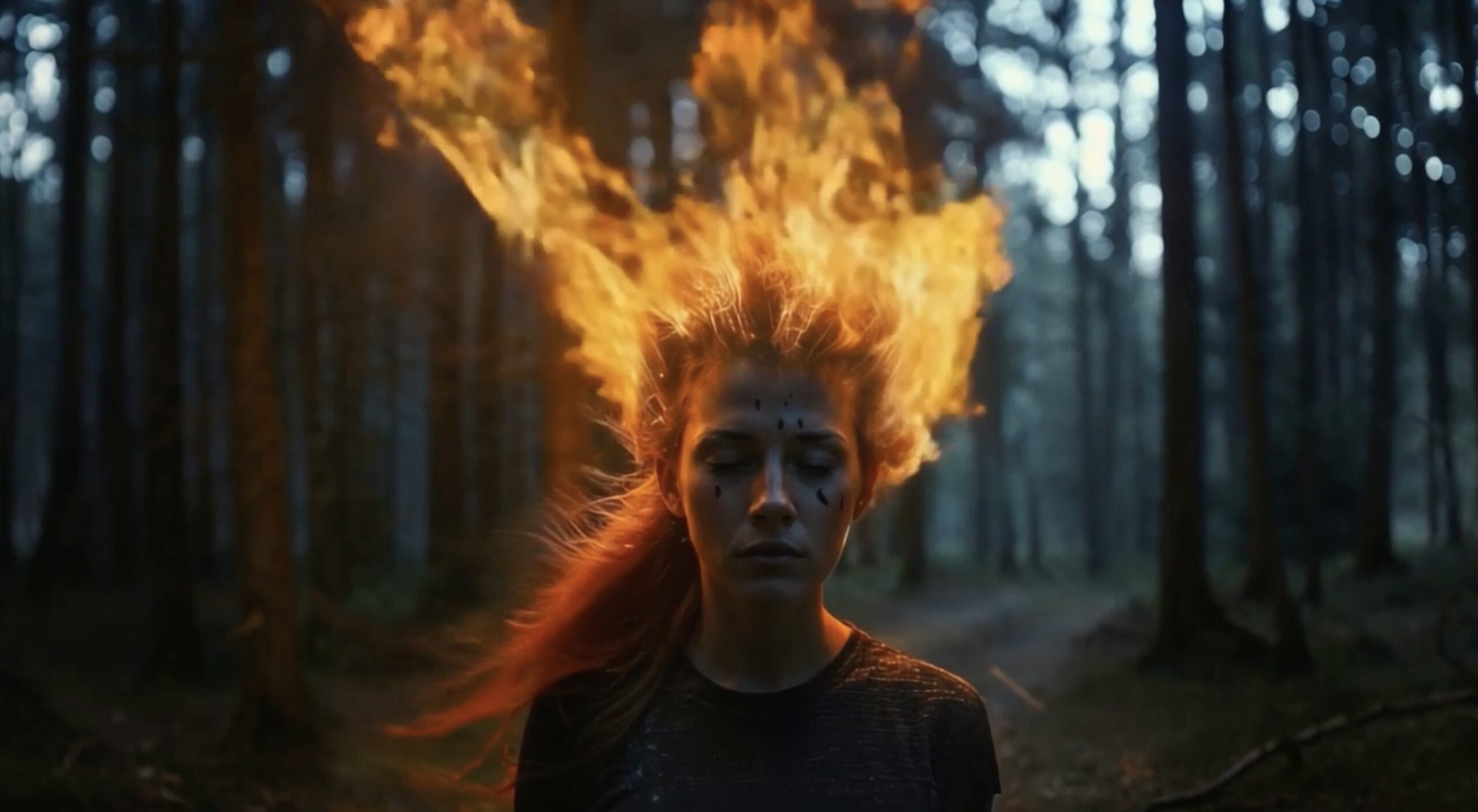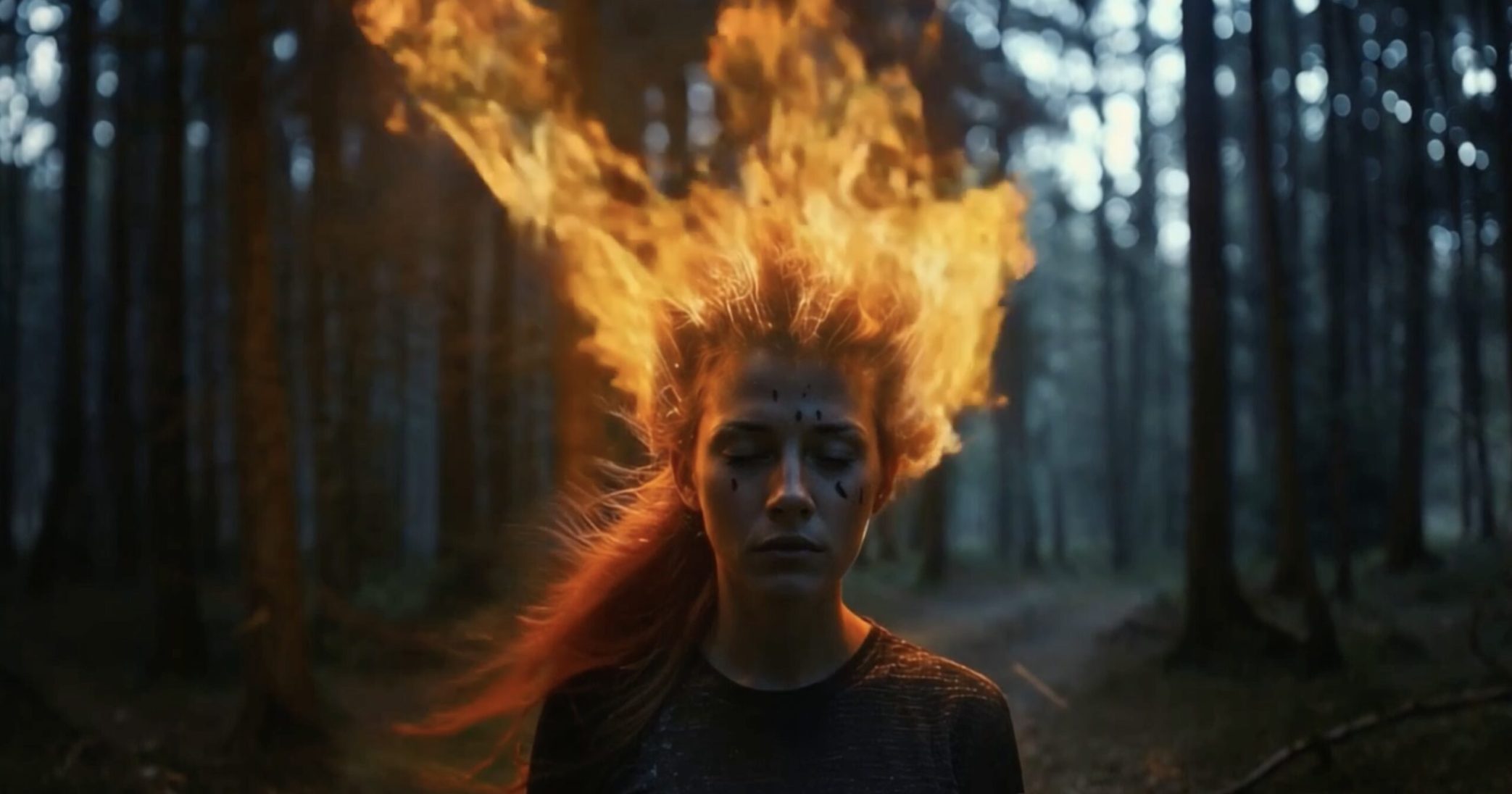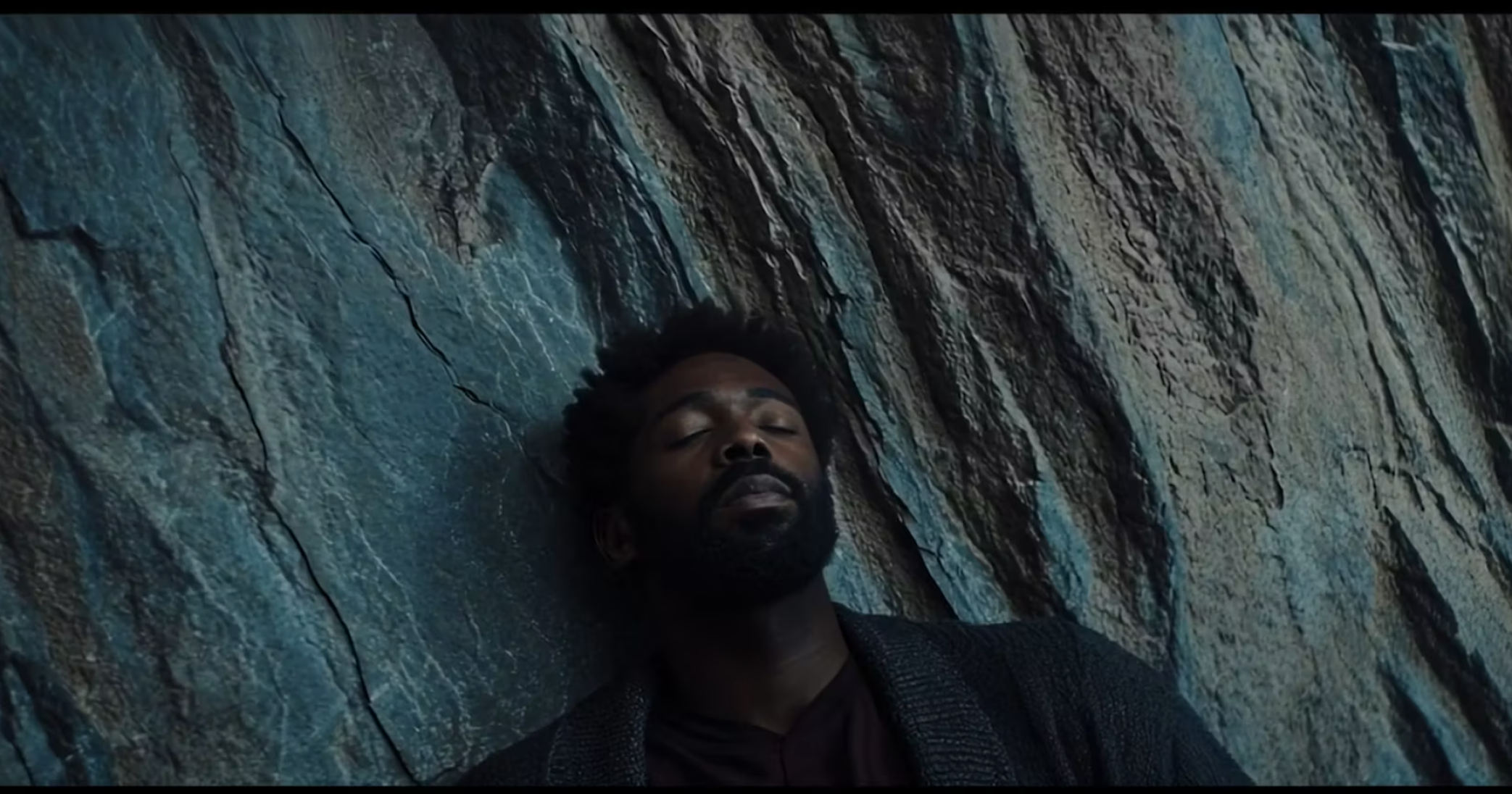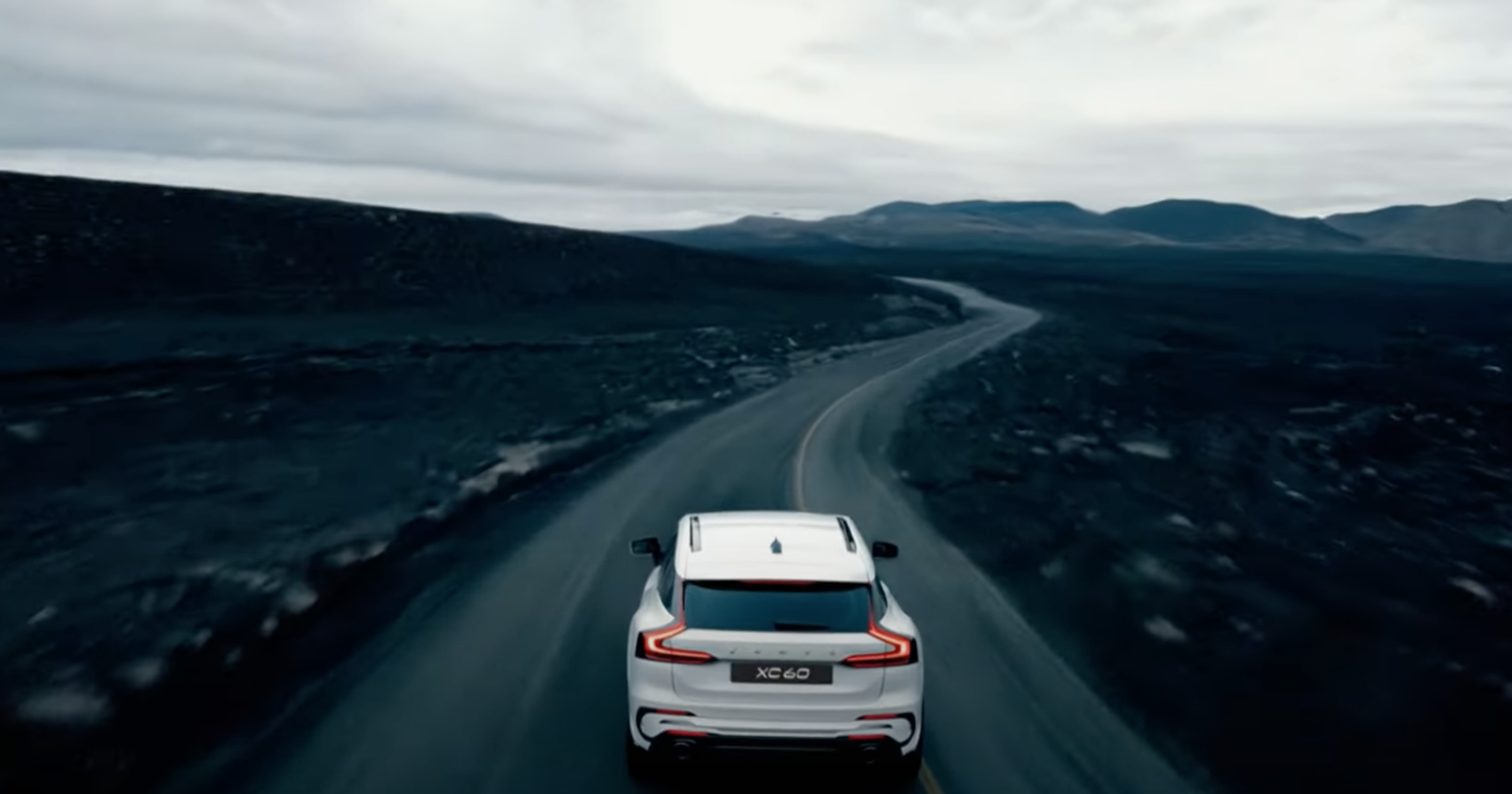You studied film production and have been intensively involved with storytelling. What led to you feeling like you wanted to turn your back on filmmaking in 2022, even though it was such a central part of your life for so long?
Life was rough for a while. I dropped in and out of college for years before finally deciding to go back and finish my degree when I turned 30. Although I was getting a film production degree, I wasn’t involved in producing or directing anything because the fire had died. The fire for creating stories through cinema had slowly faded away with life taking over. Then I discovered Midjourney in January 2023, then got access to Runway in June 2023. I was learning how to use it and decided to try making a film with it. I didn’t expect it to get me this far as I am today.
And the fire was bigger than ever and that’s how 1,000 Miles came about?
actually the fire was pretty much gone when I made 1k miles. I made it just for fun, for personal use. After it got some attention and after I won my first film award for that film, that’s when the fire came back to life and I thought “Oh, maybe this is still something I can do with me life”
June 2023 doesn’t sound like a long time ago, but in terms of prompting and AI tools, it felt like an eternity. The community was nowhere near as big as it is now. What was it like for you to be part of that early phase and to get to know the tools when the field was still in its early days?
It was really special and a unique experience and in many ways, I’m still in that type of experience right now. The tools from big companies and small teams on Github are making the production of AI more “real” in terms of quality and facial expressions. So its a constant moving target, constantly keeping up on the tools, and being aware of what’s happening in different corners of the AI communities.
How has using AI tools changed the way you make films, especially compared to traditional production? Do you feel freer or perhaps more constrained?
AI technologies have allowed me to go from thought to completed project faster than ever imaginable. Nothing has really changed in the way I make my stuff, other than the “speed of thought” aspect. This means I can go from an idea to a completed project rapidly and in a “flow state”, where I’m just moving naturally and quickly between two screens, multiple platforms/technologies, and create what I want very quickly. I feel infinitely more free because I’m not constrained by having to pay someone to create a storyboard or do VFX work for me and then wait for them to get back to me with the work.

Mit dem Laden des Videos akzeptieren Sie die Datenschutzerklärung von YouTube.
Mehr erfahren

Mit dem Laden des Videos akzeptieren Sie die Datenschutzerklärung von YouTube.
Mehr erfahren
Let’s talk about 1,000 miles. The 11-minute film is cinematically magnificent and combines storytelling and AI. Tell us a little bit about the movie. What was your workflow like?
I had the general base of the idea for the story for years. I have a list of story ideas with some more fleshed out than others. For 1k miles, it really was as simple as me getting access to Gen2 in June 2023 while I was listening to some music. I was testing out Gen2, learning how to prompt for text-to-video, which was entirely new to me. I made some cool shots, noticed how the music was lining up with the mood of the shots, and then I dropped some shots into Adobe Premiere, dropped the song into the sequence, and it just worked. Secondly, because Gen2 was text to video, I was creating the story based on the shots Gen2 created while at the same time making voices in Eleven Labs. Between how the voices turned out and the videos came out of Gen2, it was an incredibly freeing and unique experience to be in that creatively flowstate where I could move at the speed of thought to produce the film. I wrote the script as I went along and more shots developed the story in line with the voices. The first act of the film, the first 1k miles video I posted, only took a day or less, and the rest of the film took a few days longer.
There’s a misconception that AI technologies make this “easy”. Telling a good story, regardless of the tech used to produce it is never easy. It takes skill, time, talent, and blood and sweat, even with AI technologies.
Something that’s come up a lot in interviews and conversations about 1k miles is how fast I made it and how it makes people “feel” when they watch it. I come from traditional writing and filmmaking, so the “fast” aspect of how I created it really came down to the fact that I understand act structures and how to write narrative, long form content. This baseline of training myself on how to write stories and screenplays allowed me to use my traditional filmmaking and storytelling skills with AI technologies. It wasn’t as simple as “i just lucked out”. It was 20+ years of learning how to write, watching films, studying directors, listening to podcasts, shooting my own short films, and so much more.
There’s a misconception that AI technologies make this “easy”. Telling a good story, regardless of the tech used to produce it is never easy. It takes skill, time, talent, and blood and sweat, even with AI technologies.
The “flow state” you achieve with AI technology sounds very productive. Do you think this solo process is more creative in the long run, or do you sometimes miss the dynamics of teamwork?
Solo is great for a lot of reasons but I really want to get back to live action traditionmal filmmaking. I’ve been indoors pressing buttons for almost two years to make AI stuff and although its fun, I miss real human interaction and the energy felt on a movie set. For the feature film I’m working on right now, I work with a team from around the world. It’s great but again, I wish we were all in person under the same roof working together.
Many believe that AI technologies simplify the creative process, but you’ve said that good storytelling is always difficult. Despite AI tools, what aspects of filmmaking still challenge you the most?
Time, money, resources, and scheduling are some of the biggest hurdles with traditional filmmaking. But before all of that, the real challenge is writing a story that is not only told in an engaging and fun way but also pulls you in emotionally to the extent that (hopefully) you forget you’re watching a film and just get lost in the story and characters.
Time, money, resources, and scheduling are some of the biggest hurdles with traditional filmmaking. But before all of that, the real challenge is writing a story
How has your understanding of film structure and storytelling technique changed since you started working with AI? Do you see new possibilities for storytelling that didn’t exist before?
Nothing has changed other than I can see the technologies getting good enough that a young teen or even younger could produce excellent work and stories. Also, VFX work can now be achieved within video prompting so that saves time and money. It’s not remotely as perfect as using after effects or other stuff but the fact that I can prompt directly into a video I upload is really amazing.
You mentioned that you are currently working on a new feature film. Can you tell us a little bit about what the film is about and how AI is involved in this project?
The film is based on a true story of Hannie Schaft, a Dutch resistance fighter during World War II (https://en.wikipedia.org/wiki/Hannie_Schaft). The script was written by Michael Schatz and is being produced by Pouya Shahbazian. Pouya contacted me early in the year and wanted me to direct a feature film using AI technologies combined with traditional stuff. We’re using real actors, real animators, and have a small crew from around the world working together to make it happen. I’m directing and producing and my crew is helping bring it all to life.
Having worked with both traditional and AI-based filmmaking techniques, how do you see the future of filmmaking? What role do you think AI will play in the next few years?
For me, the role of AI will be to help me pitch ideas. I can make trailers based on my writing and get feedback so much faster than only have the script or a verbal pitch. I also can see AI being integrated into various workflows in pre-production and production, mainly in terms of testing out shots that require traditional VFX. I can load a video up to Runway of a man running on a beach and then prompt something like “man running on the beach with an explosion happening behind him”. Runway puts in the explosion and takes care of the lighting and all. It’s not always perfect but it’s much faster and cheaper for me as the director.
Do you see a balance for the future of filmmaking, where AI and human creativity work best together? Or do you fear that AI could become too dominant?
I absolutely see a future (and present) where AI tech can be used to augment things, make things cheaper, find solutions faster, and be surprised by things that we may have never thought of. The idea that AI tech and humans are at odds with each other is such a negative way of seeing how this tech can help us as artists and as a species. The fear mongering regarding AI tech “taking jobs” and “taking over the world” is just that; fear and ignorance. AI won’t take your job but someone who knows how to use AI tech to augment their job and make their job better, faster, and more beneficial to the company or project, will absolutely take your job. A human knowing how to use AI tech is the real threat to anyone worried about their job being replaced.
Finally, what advice would you give to someone just starting to experiment with AI tools such as text-to-video? What are the most important things to keep in mind?
If someone is using AI tools to get into filmmaking, I suggest they balance their time being learning how to use the tech and learning how to write 3 and 5 act narrative structures. A young kid could open Runway and Midjourney, smash some keys and make cool content that goes viral and gets a billion views. So, the tech and learning the tech really isn’t the issue. It’s knowing how to use the tech and knowing how to write a story that’s good enough to watch AI videos created with the tech. This really doesn’t apply to everyone but because I’m working my way towards studio work as a director in the long run, my advice to anyone is “learn to write”. The tech will come, go, and get better daily but learning how to express the human condition through narrative storytelling, using the tech available (from oral history being spoken around the campfire or the latest video model) is the secret sauce to good AI videos. At least for me.
my advice to anyone is “learn to write”.







